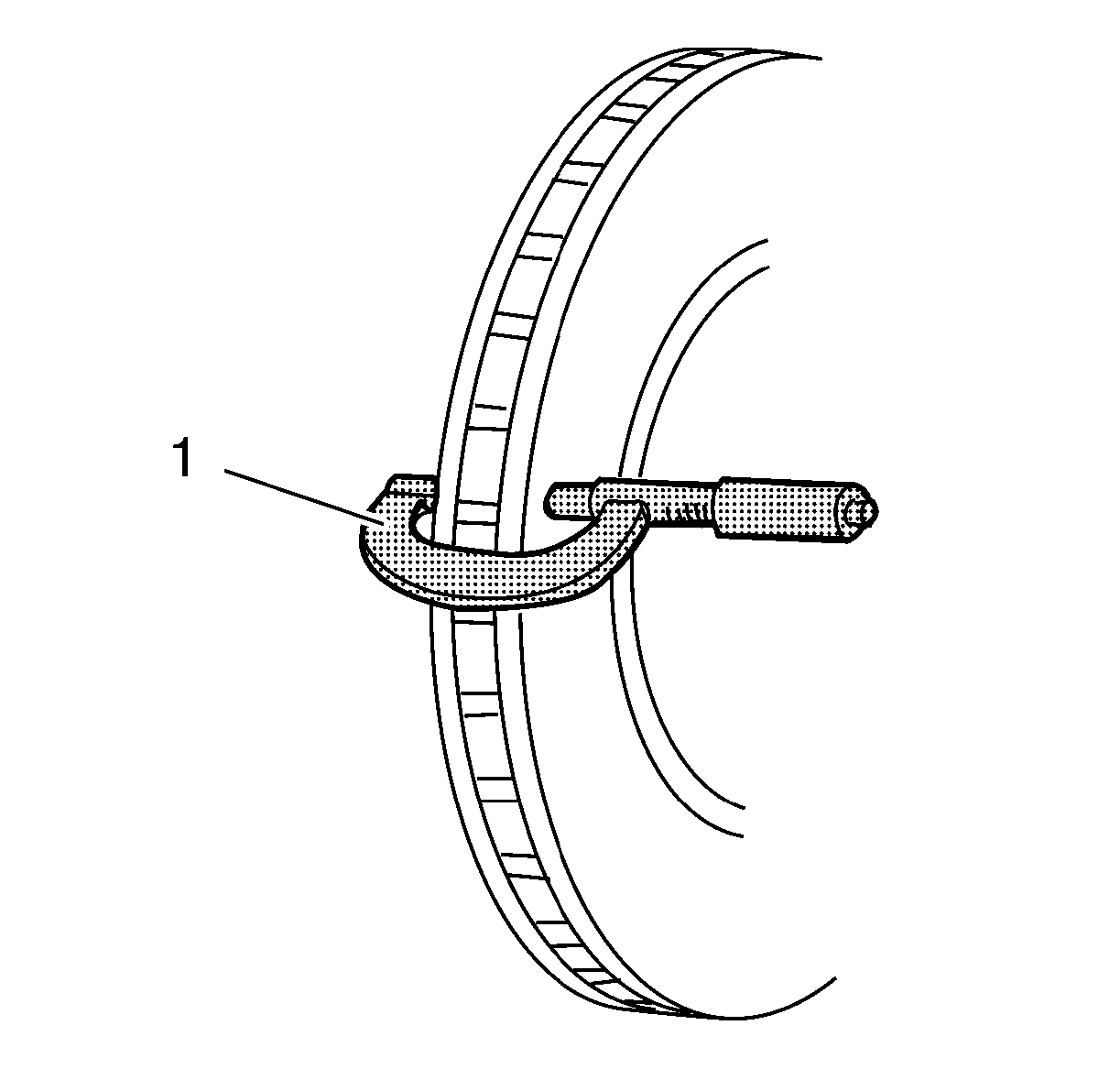Warning: Refer to Brake Dust Warning in the Preface section.
- If the inboard friction surface of the brake rotor is not accessible, reposition and support the caliper with the brake pads. Refer to
Front Disc Brake Pads Replacement or/and
Rear Disc Brake Pads Replacement.
- Clean the friction surfaces of the brake rotor with denatured alcohol, or an equivalent approved brake cleaner.
- Inspect the friction surfaces of the brake rotor for the following Braking Surface Conditions:
| • | Heavy rust and/or pitting. |
| • | Light surface rust can be removed with an abrasive disc. Heavy surface rust and/or pitting must be removed by refinishing the rotor. Refer to
Brake Rotor Refinishing. |
| • | Cracks and/or heat spots. |
| • | Excessive blueing discoloration. |
- If the friction surfaces of the brake rotor exhibit one or more of the Braking Surface Conditions, the rotor requires refinishing or replacement. Refer to
Front Brake Rotor Replacement,
Rear Brake Rotor Replacement or
Brake Rotor Refinishing.

- Using a micrometer (1) calibrated in thousandths-of-a-millimeter, or ten-thousandths-of-an-inch, measure and record the scoring depth of any grooves
present on the rotor friction surfaces.
- Compare the groove scoring depth recorded disc brake component Specifications.
- If the brake rotor scoring depth exceeds the specification, or if an excessive amount of scoring is present, the rotor requires refinishing or replacement. Refer to
Front Brake Rotor Replacement,
Rear Brake Rotor Replacement or
Brake Rotor Refinishing.

